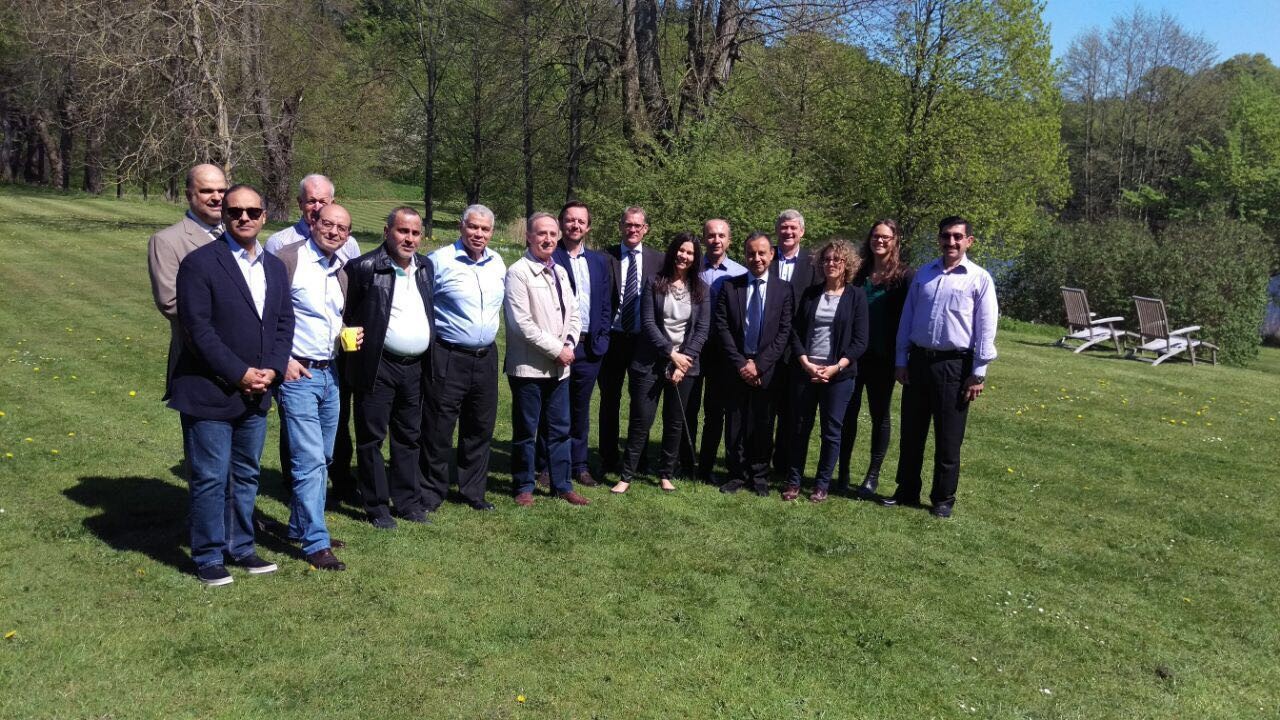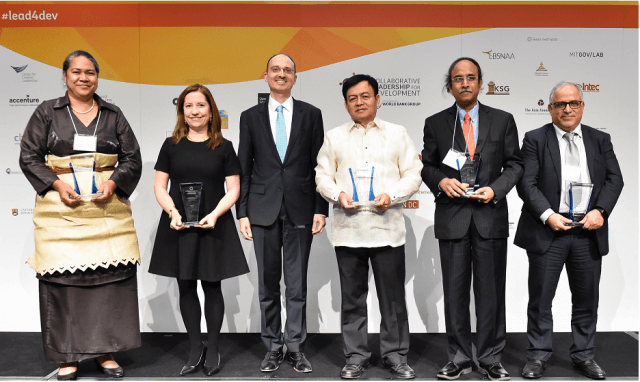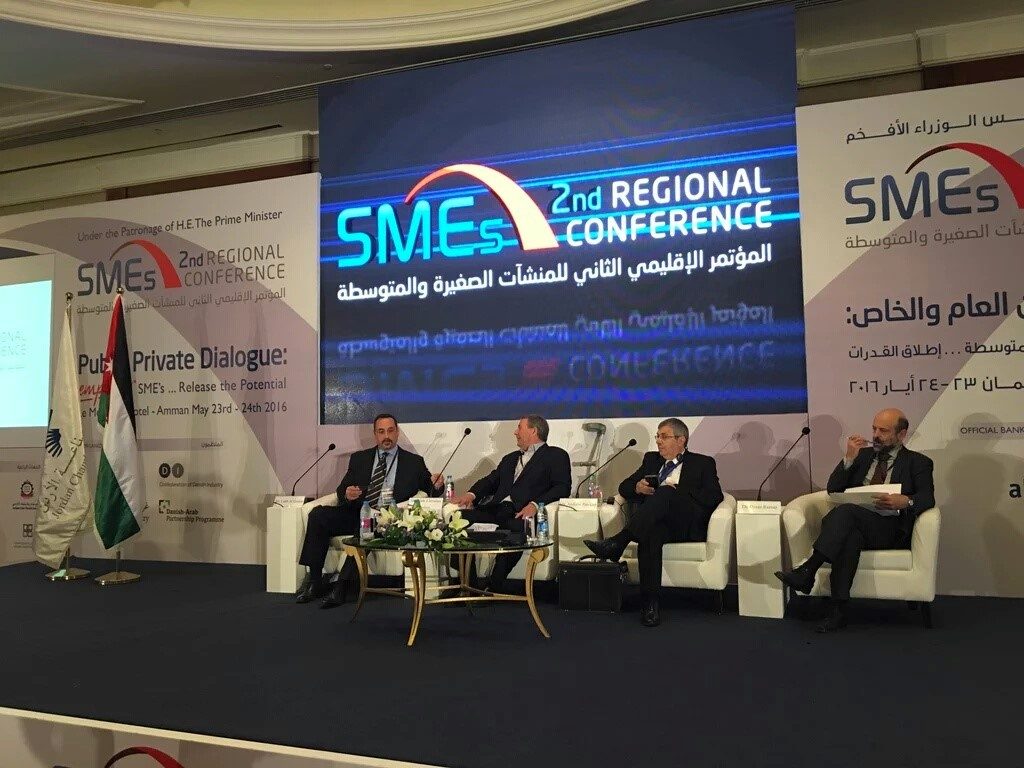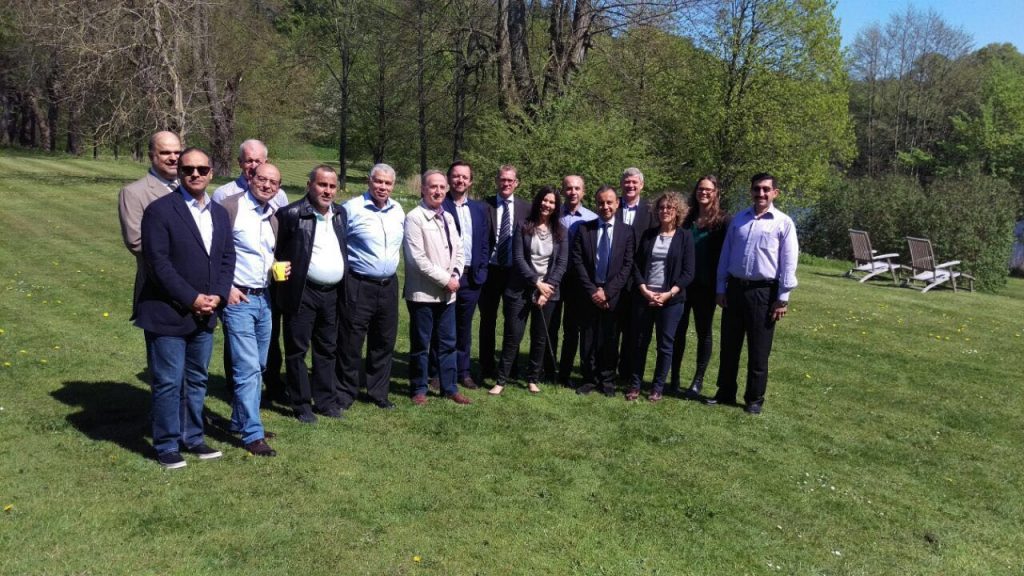In today’s world of polarized politics, divisions within societies struggling with the history of divisions feel particularly deep. Countries emerging from conflict, such as Colombia or South Sudan, are striving to make progress toward non-violence and reconciliation. Even in peaceful, mature democracies, the public discourse has become more partisan and polarized than ever. As countries look for transformative leadership to overcome divisions, they struggle with building effective coalitions that could overcome differences and find consensus in key areas.
Read More >>
Massive Open Online Course- The International Training Center of the ILO
Board leadership in business membership organizations (BMOs) is key to effective public-private dialogue. The International Training Centre of the ILO is now offering a new Massive Open Online Course (MOOC) on roles and responsibilities of board members in BMOs. This five-week online course offers inputs, practical tips and plenty opportunities to exchange with peers in order to boost efficiency of board member of BMOs. It is open to all and free!
Read More >>
Improving Public-Private Dialogue and Empowering SMEs in Jordan
Though Public-Private Dialogue (PPD) is by no means a new concept in Jordan, it has in recent years seen an uptick in interest as a means for promoting private sector potential in Jordan’s economy. Properly-implemented PPD can lead to better, more appropriate legal regulations, and increase private trust in public institutions.
Building on the success and conclusions of the first SME Regional conference, The Jordan Chamber of Industry (JCI) organized the 2016 conference with the theme “empower SMEs .
Read More >>
Introducing the Mangystau Economic Council, a new PPD in Kazakhstan
Kazakhstan is a vast country (the ninth largest in the world) that is strategically located in Central Asia. It borders include Russia and China. Along its Western border, where the Caspian Sea meets the dessert, is the small port city of Aktau. This city is the capital of the oil rich region of Mangystau. Like many oil rich countries, the decline in the price of this commodity has resulted in revenue short falls that have impacted economic development and, consequently, employment.
Read More >>
Nordic management – the Arabic way

The Executive Training Program in Denmark engaged Arabic Leaders with the ’Danish model’ where keywords such as trust, motivation, empowerment, and individual freedom were on the agenda.
By Mette Grangaard Lund
The quiet, countryside castle Skjoldenæsholm from the 14th century located between light green trees and the rolling hills of yellow cornfields is a stark contrast to the busy and bustling metropoles of Cairo, Beirut or Riyadh. Nonetheless, this was the destination for reflection and learning where executives from business organizations from nine different countries in the Middle East and North Africa (MENA) region participated in the Executive Training Program from 9th-13th of May 2016.
Read More >>
Structured dialogue, value chain and competitiveness: A journey through implementation, from Copenhagen to Kabul
Originally posted at the World Bank Private Sector Development Blog.
By Steve Utterwulghe
This latest blog post should start with a mea culpa. Indeed, my 2015 work plan for public-private dialogue (PPD) did start in Dushanbe, Tajikistan, not Copenhagen. However, who can swear that he never tweaked a title a tiny bit to make it catchier?
While Dushanbe hosted the very productive First Regional PPD Forum in the “stans,” the 8th Global PPD Workshoptook place in March in the Danish capital.
Read More >>
Using Mobile Technologies for Better Engagement with Stakeholders

By Maiko Nakagaki
How can civil society organizations gather more data and information from its constituents for a better public private dialogue (PPD) process? Taking advantage of available free or low-cost mobile technologies is one answer.
Mobile technologies have transformed how people across the world communicate and access information. According to the GSMA, already 3.2 billion people around the world are online and out of them, 2.4 billion are accessing the internet via mobile.
Read More >>
Public Procurement: The Nexus of Public and Corporate Governance in Combating Corruption
Originally posted at CIPE Development Blog

Governments around the world spend trillions on public procurement each year for everything from office supplies to military equipment to infrastructure megaprojects like this $5 billion Panama Canal expansion.
By Kirby Bryan
For over a decade, the World Bank Group’s Doing Business index has served as quintessential tool for determining how well a country’s institutional infrastructure is suited to the promotion of a productive business environment.
Read More >>
Successful Public-Private Dialogue: The Kenyan Perspective
Originally posted at CIPE Development Blog

“The work of development is too important to be left in the hands of governments alone. It is the responsibility of everyone. Especially the business community.” This was Betty Maina’s main point in her speech last week at the 8th Private-Public Dialogue (PPD) Workshop in Copenhagen, Denmark.
The workshop explored how the government, private sector, and civil society organizations can effectively use PPD platforms for collaborative governance and leadership in addressing difficult challenges.
Read More >>
Strengthening Economic Growth Through Public-Private Dialogue
Originally posted at CIPE Development Blog

Fostering a strong competitive market requires the private and public sectors to understand each other’s needs. In any country, entrepreneurs look for ways to make their businesses successful while the federal and local governments deliberate how they can boost the economy by providing loans for businesses or building up infrastructure. Developing solutions to such questions involve facilitating effective public private dialogues (PPD).
At the 8th PPD Global Workshop in Copenhagen, Denmark – which was co-organized by the World Bank Group, Ministry of Foreign Affairs, and the Confederation of Danish Industry – over 300 participants from civil society organizations, companies, governments and development partners from 54 countries came together to share their experiences with PPDs.
Read More >>
Trade Capacity Building and Private Sector Engagement
Originally posted at CIPE Development Blog

By Kirby Bryan
For sustainable economic growth, developing countries must have the capacity to functionally interact with the global market. Much of the onus for building that capacity rests on a domestic commitment to reforms compatible with global trade. Many emerging markets have lofty aspirations that are unachievable given the current state of affairs, but are determined to rectify the situation. Access to foreign markets can cement reform efforts aimed at improving the local economy and sustaining economic growth.
Read More >>
Public-Private Dialogue: The Key to Good Governance and Development
Originally posted at CIPE Development Blog
An increasing number of policy and governance challenges around the world demand private sector participation to generate viable solutions. Such challenges include poverty reduction, inclusive growth, government accountability, business integrity, national competitiveness, innovation, and access to opportunity. Although the obstacles to dialogue can be high, the value of dialogue is now widely recognized by governments and business leaders alike. Notably, the 4th High Level Forum on Aid Effectiveness in Busan, Korea, recommended that countries embrace “inclusive dialogue for building a policy environment conducive to sustainable development.”
Read More >>
An Historic Agreement: Public-Private Partnership to Safeguard Yemen’s Future
Originally posted at CIPE Development Blog

The stakes are high in Yemen’s ongoing political transition, but recently the Yemeni government and private sector took steps to ensure that this transition will lead to greater security and opportunity for all Yemenis.
Yemen’s recent history has been marked by popular demand for better governance and a more democratic policymaking process. This demand has been seen from the 2011 popular uprisings, to political demonstrations, grassroots activism, and widespread participation in the National Dialogue Conference.
Read More >>
Teach a (Wo)man How to Fish: The Changing World of International Development
Originally posted at CIPE Development Blog

Members of CIPE-supported business coalitions in Nigeria meet with political parties. (Photo: @sentellbarnes, IRI)
By Laura Boyette and Teodora Mihaylova
It is only natural that the world of international development would itself develop and change over the years to adapt to the changing landscape of needs and local capacity.
At a panel discussion at Georgetown University entitled “The Changing World of International Development,” three development practitioners from leading organizations provided some insight into how their work has changed over the years.
Read More >>
Case Study: Public-Private Dialogue in Senegal
Originally posted at CIPE Development Blog

A public-private dialogue session with Senegalese President Macky Sall.
The private sector is a key actor in efforts to promote economic growth, reform the business climate, and strengthen democratic policymaking worldwide. Businesses possess the know-how to analyze economic conditions and identify obstacles and opportunities for growth, while governments have the means to pass business-friendly legislation.
From a democratic point of view, a vibrant private sector contribution to dialogue expands participation in policymaking and civic engagement in governance, improves the quality of business representation, and supplements the performance of democratic institutions.
Read More >>
Advancing Economic Development through Public-Private Dialogue: Moldova Case Study
Originally posted at CIPE Development Blog

When the public and private sectors work together to implement necessary economic reforms, entrepreneurs, businesses and citizens benefit from a more prosperous and vibrant democracy. Businesses possess the know-how and detailed knowledge of economic conditions, obstacles, and opportunities for growth, while governments have the means to pass business-friendly legislation. Public-private dialogue helps these two groups work together to arrive at effective policy solution.
Moldova’s National Business Agenda Network (NBA), comprised of more than 30 business associations and chambers of commerce from across the country, positioned itself as a key stakeholder in policymaking.
Read More >>
Building Trust between Private, Public, and Civic Sectors within the Open Government Partnership
Originally posted at CIPE Development Blog

Michael Putra, Shell, discusses open policymaking at the OGP Asia Pacific Regional Conference, May 6. Seated to his left are Y. W. Junardy, President, Indonesia Global Compact Network, and Ahmad Yuniarto, Chairman, Schlumberger Indonesia.
At a tender three years of age, the Open Government Partnership (OGP) is growing toward maturity. It has reached a stage where it can reflect on progress made to date and learn from early attempts to inspire action by government and civil society.
Read More >>
Public Private Dialogue on Policy for Entrepreneurial Ecosystems
Originally posted at CIPE Development Blog

Here at the Global Entrepreneurship Congress in Moscow, everyone is sold on the importance of creating entrepreneurial ecosystems. There is no shortage of ideas for doing this, and the quest has risen to the level of public policy. As Jonathan Ortmans has noted, governments are now interacting with grassroots networks that are driving bottom-up ecosystem building.
Entrepreneurship advocates should pay close attention to the sphere of public-private dialogue (PPD) as a powerful means for cracking the ecosystem code in each community.
Read More >>
Strengthening Public-Private Dialogue for Sustainable Business
Originally posted at CIPE Development Blog

Participants at the Frankfurt workshop.
Effective legal and regulatory reforms are key to improving governance and creating an entrepreneurship ecosystem conducive to economic growth and shared prosperity. Yet in many countries passing and implementing new laws and regulations remains a top-down process that receives little input from stakeholders who are directly affected.
All too often such reforms, even if they appear promising, remain on paper only since they lack broader ownership and support.
Read More >>
Public Private Dialogue: How Business Promotes Economic Development and Democratic Governance
Originally posted at CIPE Development Blog

The private sector is a key actor in efforts to promote economic growth, reform the business climate and strengthen democratic policymaking worldwide. Dialogue is a key part of the Busan process, which recognizes that the for-profit private sector is a central driver of development and emphasizes the importance of inclusive dialogue for building a policy environment conducive to sustainable development.” Businesses possess the know-how of economic conditions, obstacles and opportunities for growth, while governments have the means to pass business-friendly legislation.
Read More >>







